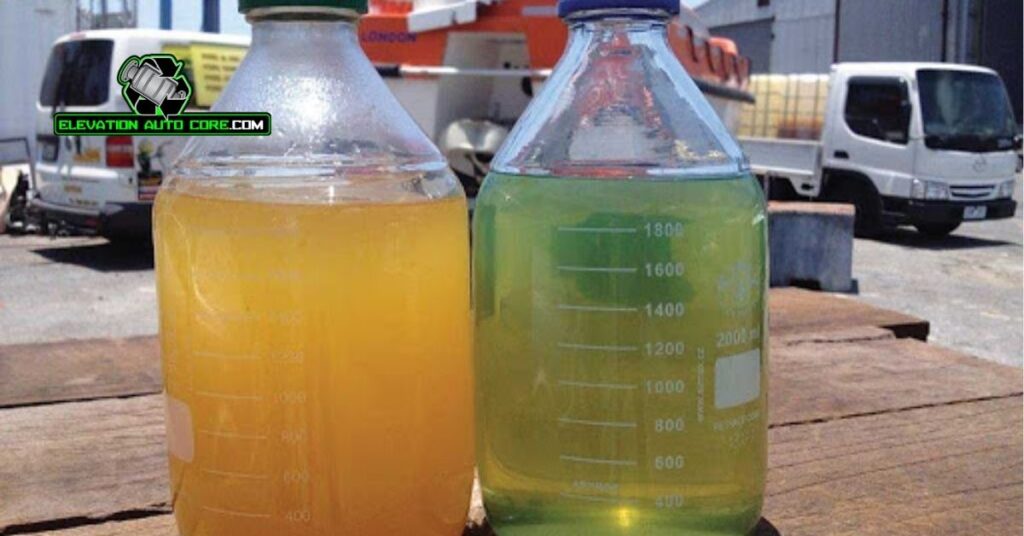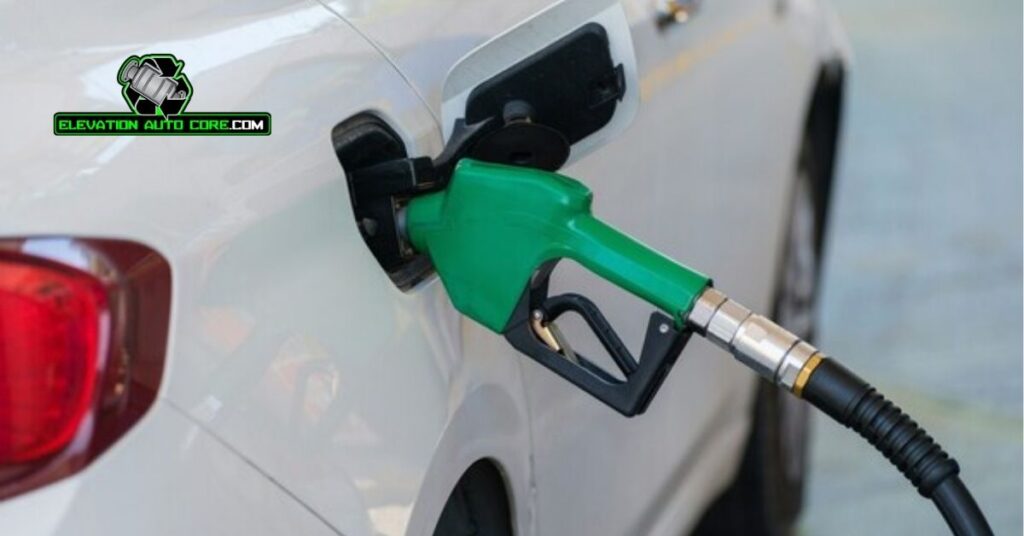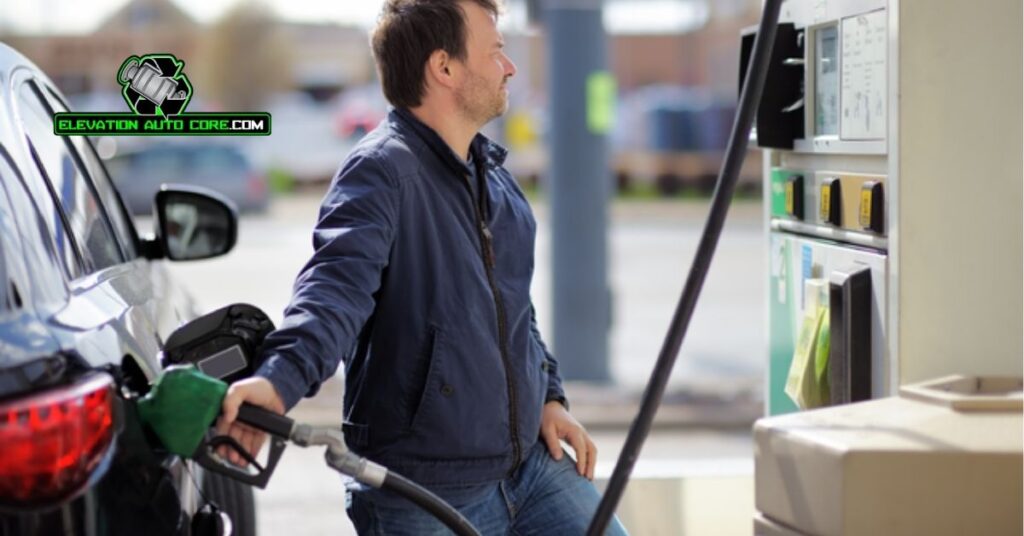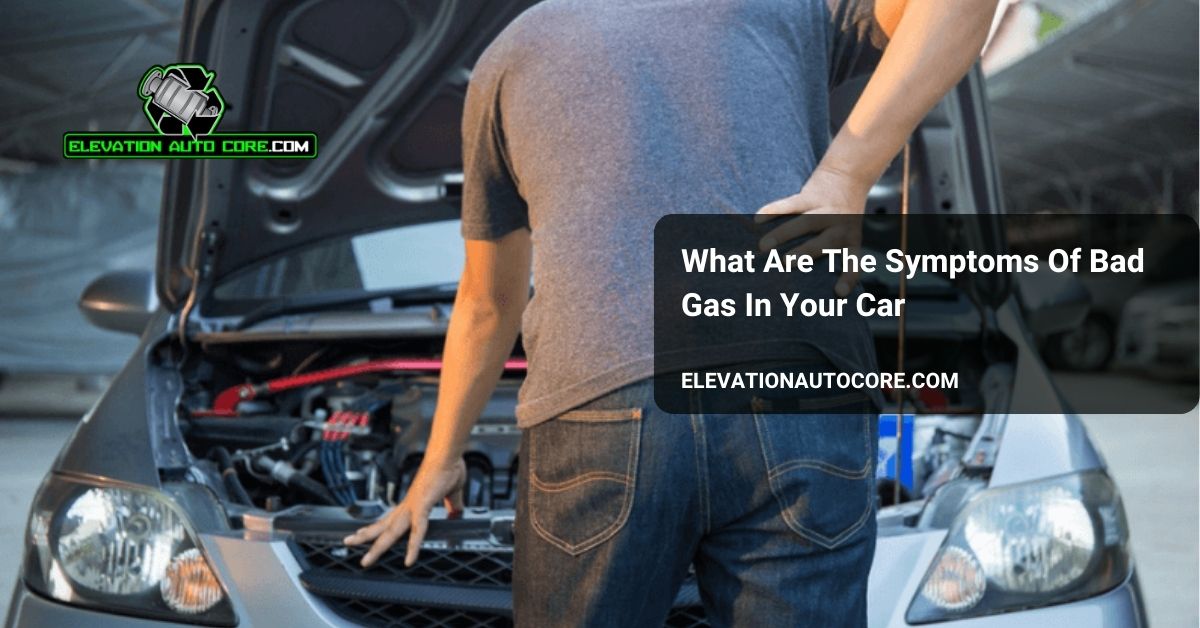Ever wondered if bad gas could be the culprit behind your car’s strange behavior? Contaminated fuel can wreak havoc on your engine, leading to rough idling, trouble starting, or even stalling. Knowing the symptoms early can save you from costly repairs—keep reading to spot the warning signs before they escalate.
Common Symptoms Of Bad Gas In Your Car

Bad gas can create operational problems for your car, reducing performance and causing noticeable issues. Identifying these symptoms quickly can save you trouble and prevent costly repairs.
Engine Misfires Or Stalls
Your engine may misfire due to inconsistent combustion caused by contaminated fuel. Misfiring often feels like jerks or interruptions while driving. In extreme cases, stalling might occur, especially when idling or under load.
Poor Acceleration And Engine Performance
Acceleration might feel sluggish when the gas lacks proper combustion quality. Weak fuel can strain engine performance, making it hard to achieve smooth power delivery. You may notice struggles during uphill driving or rapid speed changes.
Unusual Noises From The Engine
Strange engine sounds, such as knocking or pinging, might be an effect of bad gas. These noises typically point to improper fuel ignition. If left unchecked, this can strain engine components and worsen over time.
Hard Starting Or Failure To Start
Difficulty starting your car often stems from fuel supply issues caused by contaminated gas. Engines may crank multiple times without success, and in severe cases, the vehicle might not start at all. This symptom is especially noticeable after refueling.
Signs Of Contaminated Or Old Gasoline

Bad gas in your car can lead to several noticeable signs. Recognizing these early helps prevent further engine issues.
Foul Odor Or Discoloration
A distinct sour or strong gasoline smell may indicate contamination. Contaminated fuel often appears darker than usual, potentially brown or with a cloudy texture. Checking a small sample from the fuel tank or gas can confirms unusual discoloration.
Decreased Fuel Efficiency
Frequent refueling even though consistent driving patterns suggests bad gas. Impurities in the fuel affect combustion efficiency, causing your engine to consume more fuel for the same distance. Tracking mileage over time can help identify abrupt drops in performance.
Presence Of Water Or Particles
Inspecting gas for visible particles or sediments is crucial. Tiny debris, rust, or water layers settling at the bottom may be present in contaminated gasoline. Water contamination often results from condensation or improper storage conditions.
Potential Damage Caused By Bad Gas
Contaminated fuel doesn’t just impact a car’s performance; it can also lead to important damage over time. Various components are at risk when bad gas enters the system.
Clogged Fuel Filters Or Injectors
Fuel filters and injectors can accumulate debris from contaminated gasoline. Filters may block impurities but eventually become fully clogged, limiting fuel flow. Injectors, designed to spray fuel into the engine, can fail due to buildup, resulting in uneven combustion and reduced engine efficiency. You’ll notice weaker acceleration and possible misfires in such cases.
Harm To The Fuel Pump
Fuel pumps rely on clean fuel to function effectively. Bad gas with water or particles can cause internal wear, overheating, or complete failure of the pump. Damage to the fuel pump often leads to inconsistent fuel pressure, making your car sputter or stall, especially at high speeds. Early signs may include whining noises from the gas tank.
Corrosion In The Fuel System
Contaminants like water in bad gas can corrode metal components of the fuel system, including the tank and lines. Rust formation compromises structural integrity and may lead to leaks. Over time, corrosion spreads, increasing repair costs and the risk of fuel delivery issues. Observing discoloration in drained gas or a fuel smell might indicate such damage.
How To Diagnose Bad Gas In Your Car

Identifying bad gas early can help avoid extensive engine damage. Look for changes in performance, physical signs in your fuel, or use testing methods to confirm contamination.
Inspect The Fuel
Begin by checking the gas in your tank for unusual characteristics. Remove a small sample of fuel if possible. Look for discoloration; contaminated gas often appears darker or cloudier than usual. Detect sour or foul smells that signify the presence of degraded or contaminated fuel. Examine closely for visible debris, sediments, or separation of water in the gasoline, which can indicate a storage or refueling issue.
Observe Engine Behavior
Bad fuel commonly disrupts engine functions. Monitor your car for rough idling, frequent stalls, or misfiring while driving. Take note of delayed acceleration or difficulty achieving steady speeds, especially uphill. Listen for unusual sounds, such as pinging or knocking, caused by improper combustion. Difficulty starting the engine, particularly after refueling, can be another strong warning sign.
Use A Fuel Testing Kit
Reliably confirm fuel quality using a dedicated testing kit. Fuel testers analyze small samples for impurities, water content, or separation layers. Follow the kit’s instructions carefully to ensure accurate results. This step helps verify contamination when visible signs or engine symptoms are inconclusive.
Prevention And Remedies For Bad Gas

Preventing bad gas helps maintain your car’s performance and reduces repair costs. Address potential contamination risks by following these practices.
Regular Maintenance And Inspections
Schedule routine maintenance to detect any fuel-related issues early. Clean or replace fuel filters regularly to ensure debris doesn’t clog the system. Inspect visible components, such as fuel lines and injectors, for signs of wear or buildup. Bad gas often affects combustion, so monitor engine behavior, like unusual sounds or difficulty starting, during inspections.
Use Recommended Fuel And Additives
Always refuel with gas that meets your car manufacturer’s specifications. Choose reputable gas stations to avoid contaminants that lead to poor engine performance. Additives designed for fuel system cleaning can help reduce impurities and maintain fuel quality when used periodically. Look for water-removing or fuel-stabilizing products if contaminated gasoline is a concern.
Safe Storage Practices For Long-Term Gasoline
Store gas in approved, airtight containers to minimize exposure to air and moisture. Place containers in cool, dry locations to prevent temperature fluctuations, which cause condensation and water buildup. Rotate stored fuel regularly to maintain usability, as gas quality degrades over time. If storage is necessary for prolonged periods, stabilize the gasoline with an additive to preserve its composition.
Conclusion
Bad gas can significantly impact your car’s performance and lead to costly repairs if left unaddressed. Recognizing the signs early, such as unusual engine behavior or visible fuel contamination, is key to protecting your vehicle. By staying proactive with regular maintenance and using high-quality fuel, you can minimize the risk of bad gas affecting your car. A little attention now can save you from bigger headaches down the road.

